As we see in the whole implementation of the SAFETY project, in the dynamic landscape of healthcare, technology plays a pivotal role in shaping the future of patient care, system efficiency, and decision-making processes. One crucial aspect of this technological evolution is e-health assessment, a strategic initiative aimed at harnessing the power of information and communication technologies (ICT) to revolutionize healthcare practices.
What is an E-health Assessment?
E-health, or electronic health, refers to the integration of digital technologies into healthcare practices, promoting efficiency, accessibility, and improved patient outcomes. E-health assessment, in particular, focuses on evaluating the impact and implementation of digital tools and strategies in the healthcare sector.
Its key Objectives are the following:
- Assessing the effectiveness and impact of various health technologies, including electronic health records, telemedicine, and digital health solutions.
- Ensuring compliance with regulations and standards governing the use of technology in healthcare, fostering a secure and ethical digital healthcare environment.
- Identifying opportunities for enhancing the quality of healthcare services through the integration of technology, leading to improved patient care and outcomes.
The importance of e-health assessment is also demonstrated by some recent Tender Opportunities launched by the European Commission. The tender “EU4Health call to build capacity and knowledge for the implementation of the EU Health Technology Assessment Regulation (HTAR)” (link) has been issued to ask experts in the e-health sector to design and deliver training programs for health technology assessment (HTA) to assessors, co-assessors and staff involved in HTA agencies. The training aims to equip participants with a comprehensive understanding of the Regulation on HTA (HTAR), the framework of joint HTA, and the methodology for preparing joint clinical assessments (JCAs) and joint scientific consultations (JSCs).
This tender has two different objectives: on the one hand, it required the proposal of Training Delivery, including designing and delivering virtual classrooms and eLearning modules and providing follow-up tutoring for enhanced comprehension. On the other, it requires the development of a competency framework, in particular creating a competency framework for assessors and experts involved in JCAs and JSCs.
Written by ValueDo team, Florence (Italy)



